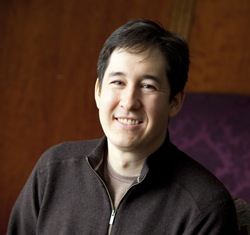Related

Dec 05,2013
Links Roundup: MOOCs, Infrastructure, Training, and More
by
Kari Kohn

Jul 25,2012
Nathan Nunn on Culture and Economic Development
by
Brandon Fuller
News that Pearson intends to invest in low-cost private education in Africa and Asia, beginning with the privately held Omega schools in Ghana, elicited some negative reactions in this Guardian piece. Here are some excerpts:
Whether low-cost private schools like Omega can effectively and profitably provide education is an interesting and open question, but the critics — at least as the Guardian has presented them — seem focused on the wrong issues. Here are a few reactions to the reactions:
I doubt anyone would say: “If we are talking about poverty reduction, the idea that poor people should be paying for services that they value is absurd.” Isn’t the fact that a reputable publishing and education company sees a growth opportunity in selling services to low-income families in Africa and Asia a sign of progress rather than a reason for pessimism?
In places where parents still pay fees for public schooling, the low-cost private schools can capture market share by charging less. Assuming the education on offer is the same or better, their entry would help to free up some budget space for low-income families. The fact that firms and entrepreneurs see profitable opportunities at the bottom of the pyramid seems like good news from a development perspective.
Governments can boost enrollments by eliminating fees or making use of conditional cash transfers. But as Lant Pritchett has pointed out elsewhere, boosting enrollments is not automatically a great outcome. If schools do a poor job of educating children or worse, set them back, then fees and enrollment levels aren’t the primary issues. Parents might reasonably choose a low-cost private school where their children learn something to a free school where they learn nothing. The fact that a school like Omega might provide this option in certain places seems like a positive development.
But this is where I think a real concern arises. We can’t rely on Pearson’s marketing department to tell us how well their schools are doing. Without a common standard against which to measure the performance of schools — be they public, private for-profit, or private not-for-profit — it can be difficult for governments to identify what works and for parents to identify the best educational value for their kids. The NGOs and the UN might be helpful on this front. With a common standard, governments and NGOs can hold various schools accountable, encourage constructive competition, and arm students and parents with information about the quality of schools.
Please fill out the information below to receive our e-newsletter(s).
*Indicates required.